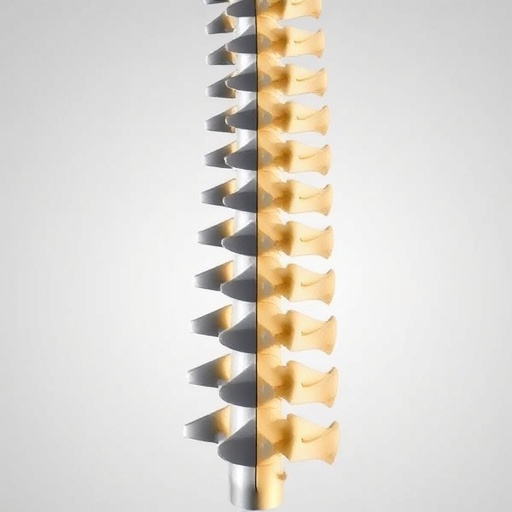
In the struggle against cancer, scientists are continually unraveling the complex interactions that govern tumor behavior and therapy response. Among the multitude of cancers, triple-negative breast cancer (TNBC) has garnered significant attention due to its aggressive nature and limited treatment options. Recent research led by Yang et al. illuminates a groundbreaking approach combining CDK4/6 inhibitors, radiotherapy, and anti-PD-L1 immunotherapy to enhance therapeutic efficacy against TNBC. This innovative strategy is poised to change the way clinicians approach treatment for patients afflicted by this challenging malignancy.
CDK4/6 inhibitors, known for their role in cell cycle regulation, have emerged as a formidable class of agents in oncology. By targeting Cyclin-Dependent Kinases 4 and 6, these inhibitors effectively halt the progression of the cell cycle, thereby hindering cancer cell proliferation. As researchers explore their potential beyond endocrine-responsive tumors, their synergy with other modalities presents new avenues for TNBC management. The unique challenges presented by TNBC demand an innovative treatment framework, and the incorporation of CDK4/6 inhibitors appears promising.
Radiotherapy, a cornerstone of cancer treatment, has potential impacts extending beyond the direct cytotoxic effects on tumor cells. It induces cellular stress responses that orchestrate immune modulatory effects within the tumor microenvironment. The research team posits that combining CDK4/6 inhibitors with radiotherapy could create a more amenable environment for immune-mediated therapies, transforming the TNBC treatment landscape. By priming the tumor microenvironment, this dual approach enhances the efficacy of concurrent immunotherapy, notably anti-PD-L1 agents.
PD-L1, a critical checkpoint protein, is frequently overexpressed in TNBC, contributing to immune evasion. Anti-PD-L1 therapy works by reactivating the immune system’s ability to recognize and attack cancer cells. However, the response rates to monotherapies are variable and often suboptimal in TNBC patients. Yang et al. propose that by utilizing CDK4/6 inhibitors and radiotherapy to modify the tumor microenvironment, the combination could sensitize tumors to anti-PD-L1 immunotherapy, leading to improved clinical outcomes.
The studies conducted by the authors provide a compelling rationale for this tripartite approach. In preclinical models, the co-administration of CDK4/6 inhibitors and radiotherapy demonstrated a marked decrease in tumor growth and a notable increase in immune cell infiltration. These findings underscore the potential to convert “cold” tumors, which are typically resistant to immunotherapy, into “hot” tumors that attract immune effector cells and enhance the anti-tumor immune response.
Furthermore, the combination of CDK4/6 inhibitors with radiotherapy not only affects the tumor directly but may also modulate systemic immune responses. This suggests that such a strategy could yield benefits beyond the local tumor site, impacting distant micro-metastases. The comprehensive effects on immune modulation open the door to explorations of combination treatment regimens seeking to leverage systemic immunity as an effective arm against breast cancer.
Investigating the molecular mechanisms underpinning the synergy among these treatments is paramount. In-depth analyses revealed that CDK4/6 inhibition leads to altered expression of immune-related genes within the tumor microenvironment, potentially reversing immune suppression. This mechanism provides a solid biological basis for the enhanced performance of anti-PD-L1 therapy in conjunction with the other agents. By elucidating these pathways, future therapeutic strategies can be further refined, ensuring that treatments pivot towards personalized medicine.
Clinical studies are critical in translating these findings into tangible patient benefits. Yang et al. emphasize the necessity for clinical trials to assess the safety and efficacy of this combinatorial strategy in patients with TNBC. As we stand on the cusp of exciting advancements in cancer therapeutics, the successful integration of CDK4/6 inhibitors with radiotherapy and immunotherapy could establish a new standard of care for patients facing this difficult-to-treat cancer.
Moreover, the safety profile of CDK4/6 inhibitors is well-documented among patients with other breast cancer subtypes, suggesting that these agents may be well-tolerated in TNBC contexts as well. Understanding the toxicities associated with combination therapies will be essential to maximizing benefits while minimizing adverse effects, ensuring that patients can endure treatment regimens conducive to improved cancer care.
Another intriguing aspect of this research lies in the potential to uncover biomarkers that could predict which patients are likely to respond to the tripartite treatment. Identifying such biomarkers is an indispensable step in tailoring oncology treatments, allowing clinicians to select patients who may derive the most significant benefit from potent combination regimens. Ongoing studies are anticipated to explore genetic and molecular characteristics of TNBC that correlate with enhanced responses to the synergistic therapy proposed.
In conclusion, Yang et al. present pivotal findings that could redefine therapeutic strategies for triple-negative breast cancer. By harnessing the unique properties of CDK4/6 inhibitors, radiotherapy, and immunotherapy, this innovative approach holds the promise to enhance treatment efficacy in a clinical setting. As ongoing studies aim to transition these exciting concepts from bench to bedside, the medical community remains hopeful about the prospects for improving patient outcomes in the relentless battle against TNBC.
Understanding and improving the management of triple-negative breast cancer is at the forefront of cancer research, with each new discovery paving the way toward innovative treatment paradigms. The convergence of targeted therapies, traditional modalities, and the harnessing of the immune system stands to revolutionize how healthcare providers approach this formidable disease. With continued research focused on this synergy, the future of cancer care looks increasingly promising for those affected by TNBC.
Subject of Research: Triple-Negative Breast Cancer Treatment Enhancement through CDK4/6 Inhibitors, Radiotherapy, and Anti-PD-L1 Immunotherapy
Article Title: CDK4/6 inhibitors synergize with radiotherapy to prime the tumor microenvironment and enhance the antitumor effect of anti-PD-L1 immunotherapy in triple-negative breast cancer.
Article References:
Yang, WC., Wei, MF., Shen, YC. et al. CDK4/6 inhibitors synergize with radiotherapy to prime the tumor microenvironment and enhance the antitumor effect of anti-PD-L1 immunotherapy in triple-negative breast cancer.
J Biomed Sci 32, 79 (2025). https://doi.org/10.1186/s12929-025-01173-3
Image Credits: AI Generated
DOI: 10.1186/s12929-025-01173-3
Keywords: Triple-negative breast cancer, CDK4/6 inhibitors, radiotherapy, anti-PD-L1 immunotherapy, tumor microenvironment, immune modulation, cancer treatment.
Tags: anti-PD-L1 immunotherapyCDK4/6 inhibitors in cancer treatmentcell cycle regulation in oncologyenhancing cancer treatment efficacyimmune modulation in tumorsinnovative cancer treatment strategiesnovel approaches to TNBCovercoming treatment resistance in cancerradiotherapy and immunotherapy combinationsynergistic effects of cancer therapiestargeted cancer therapiestriple-negative breast cancer therapy




